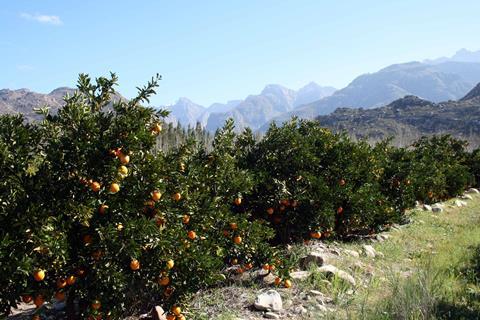Future removal from the American Growth and Opportunities Act would have dire consequences for South African citrus
The South African citrus industry has always said that its products are valued across the globe for their high quality. This is also the case in the US, where growers from the Western and Northern Cape have built a significant market during more than two decades.

“Over the last few years, we have been exporting more and more of our citrus to this market, with Americans eager to buy our oranges, mandarins and grapefruit,” said Citrus Growers’ Association CEO Justin Chadwick.
“Exports to the United States almost doubled from 60,000 tonnes in 2020 to 112,594 tons last year, bringing in R1.6bn in export revenue and supporting thousands of jobs.
“This impressive progress is in large part due to the African Growth and Opportunity Act (AGOA), which provides preferential market access to a wide range of African products, including South African citrus,” he noted. ”The Act ensures our citrus is not subject to current United States import tariffs.”
Local growers receive an enormous boost due to AGOA, giving them a competitive edge in this market. “We really do need this edge,” Chadwick confirmed.
The whole issue of South Africa’s participation in AGOA has been forced into focus due to macro-political issues, mostly resulting from the war in Eastern Europe and South Africa’s stated position on links with Russia.
AGOA will be renewed in two years’ time and is presently under discussion in the US Congressional Committees.
Chadwick explained that South Africa had to compete with other Southern Hemisphere countries like Peru and Chile for shelf space during the summer months in the US.
“These countries already have advantages of their own,” he said. ”Their citrus enters the US duty free, and thanks to shorter transit times to the US, they enjoy lower costs throughout the supply chain.
“It is also important to understand that AGOA is not a trade agreement. It is an Act, passed by the US Congress in 2000. This leaves South Africa more exposed, because traditional trade agreements can be negotiated in such a way that they are more difficult to dissolve, but that is not the case with AGOA.
“If South Africa is removed from AGOA, citrus will suffer,” Chadwick added. ”Almost R2bn in export revenue will be threatened and thousands of rural jobs would be impacted.”
Currently, because of phytosanitary restrictions, only citrus from the Western and Northern Cape is shipped to the US.
According to the CGA the citrus industry in these two provinces of South Africa sustains an estimated 35,000 jobs at farm level, with additional jobs right through the supply chain. An additional 20,000 jobs in the US are also linked to the exports.






